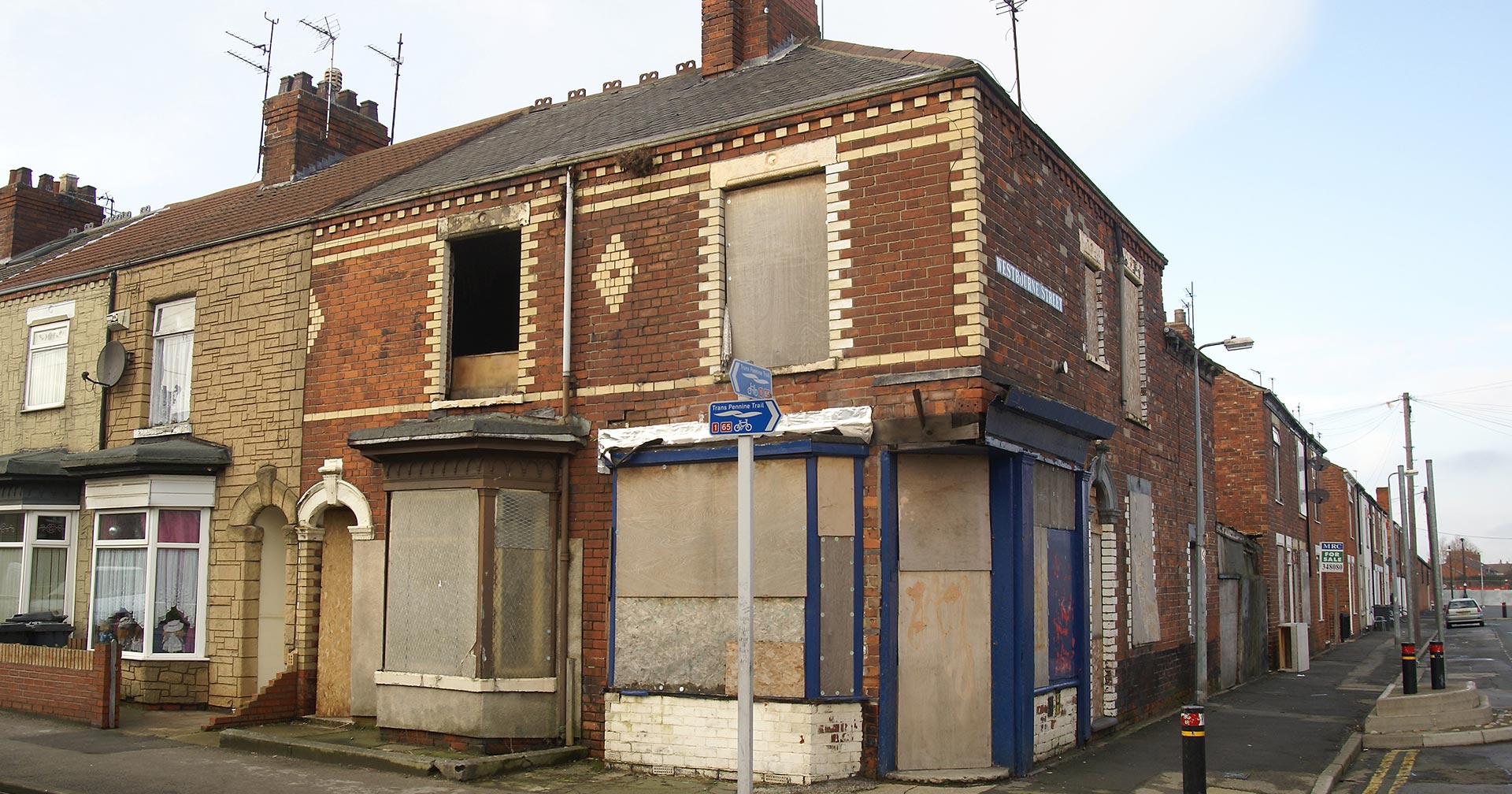Who’s responsible for derelict buildings?
09-08-2018
Are you worried that the nearby abandoned building will affect your property value, or that it might be dangerous? Kim Faivelowitz takes a look at your legal rights.

09-08-2018
Are you worried that the nearby abandoned building will affect your property value, or that it might be dangerous? Kim Faivelowitz takes a look at your legal rights.

If you own your own property, then you’re generally responsible for the upkeep of the building. The buck stops with you, whether the property is residential or commercial, and by law, you have to ensure it’s safe for members of the public to enter or pass by.
If a building falls into disrepair or becomes an eyesore, what rights do neighbours have to force the owner to secure, renovate or, at the very least, tidy up a bit?
A run-down property with boarded-up windows, old mattresses in the front garden, and weeds climbing up every wall have the ability to have a massive impact on the value of surrounding properties.
It’s estimated that a run-down or derelict property could wipe up to 12% off the value of surrounding houses. That means you could end up losing thousands of pounds on the value of your property (as well as finding it exceptionally difficult to sell in the first place), just because a house up the road has fallen into disrepair.
Property can become vacant for any number of reasons. As people struggle to meet increasingly high mortgage costs, it could be that the property has been repossessed and is currently owned by a bank or building society, rather than an individual. Up to 125 homes a day are being repossessed, and it can be months before the bank or lender gets around to selling the property on.
Nearly all councils now have an ‘Empty Property Officer’ whose job it is to deal with complaints about empty properties. They are there to act as a mediator between property owners and their neighbours to sort out issues that can lead to conflict.
Empty Property Officers usually work in the Building Control department, who are happy to come out and visit sites that are causing a problem. Derelict properties seem to attract vandals like bees to a honeypot, so it’s important that the owners are forced to secure the property to prevent it becoming even more of an eyesore or, potentially, dangerous.
After a visit by an Empty Property Officer, a property owner will have 48 hours to make the building secure. If an owner cannot be located then the council will lock and gate the building to stop squatters and vandals accessing the property.
If a property stays empty for more than six months the council may be able to make an ‘Empty Dwelling Management Order’. This means the council could effectively take over the property and let it out to tenants.
So if you are a property owner and have inherited a run-down property, for example, in a will, it’s important to contact the council straight away to make it clear that you are the owner, and that you are taking steps to sort out the condition and security of the property.
Derelict buildings should be secured and made as safe as possible, but again, it is the owner’s responsibility if any injuries occur as a result of falling masonry, jagged metal or broken glass.
As long as the owner has made every reasonable effort to make sure the building is secure and clear ‘no trespassing’ warnings have been put up, then they should be covered legally if a trespasser is injured while on the site.
However, it’s also up to the owner to make sure that property which borders public rights of way such as roads or pavements is also safe and secure. If something falls from a derelict building and injures a passer-by or damages their property then the owner can be held both legally and financially responsible.
If you are concerned about the impact of a derelict building on the value of your property or are concerned that an abandoned property constitutes a hazard or is potentially dangerous, your first port of call should be your local council.
If you feel that you’re getting no positive response from this initial contact then your next step should be to contact a solicitor or legal representative who specialises in property law.